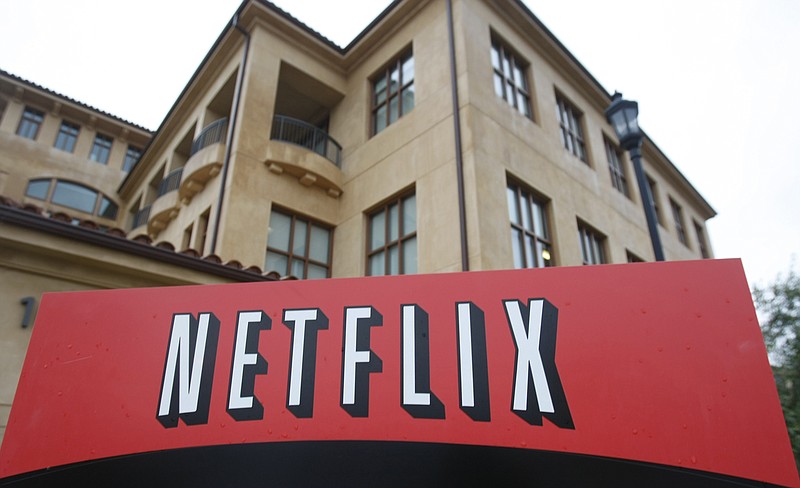Netflix will deposit $10 million in a Jackson, Miss., credit union so it can use the money to build economic opportunity in Black communities.
About 20% of Hope Credit Union's customers are in Arkansas, said Bill Bynum, the credit union's CEO.
"We serve about 10,000 people in Arkansas on a regular basis," he said. "We're looking to increase that."
The credit union also serves customers in Alabama, Louisiana, Mississippi and Tennessee. Its Arkansas branches are in Little Rock, College Station, Pine Bluff and West Memphis.
Netflix made the announcement Tuesday.
"As part of our commitment to racial equity, we are turning understanding into action," Netflix said in a company blog post at media.netflix.com/en/company-blog. "Going forward, Netflix is going to allocate 2% of our cash holdings -- initially up to $100 million -- into financial institutions and organizations that directly support Black communities in the U.S."
Hope Credit Union calls the $10 million a "transformational deposit" because the money will be used to help transform communities.
"We expect to make hundreds of loans -- 2,500 to small businesses -- to homebuyers, to individuals, for a range of consumer needs over the next two years," said Bynum. "I expect a significant portion of those to be in Arkansas."
"Eight out of 10 Hope members are people of color and 82% of our locations are in majority Black communities," said Ed Sivak, an executive vice president of the credit union.
"While loans supported by the Netflix investment are available to all of Hope's members, the vast majority will go to Black residents living in majority Black communities in the Deep South," said Sivak.
According to Hope Credit Union's website at hopecu.org, traditional banks use low- or no-cost checking and savings accounts to fund their lending activities.
"However, Hope Credit Union serves one of the nation's most impoverished regions, a place from which wealth has been extracted for generations, and where families have limited ability to build savings and other assets," according to the website. "Consequently, Hope's ability to secure local deposits is constrained."
Hope Credit Union must import capital into these communities to finance small businesses, housing, health care and other vital needs.
"Previously, this has been in the form of certificates of deposits, often from depositors seeking a high rate of return," according to the website. "As a result, Hope's overall cost of funds is 1% higher than banks and credit unions that operate in affluent markets, with ready access to low-cost checking and savings accounts."
Bynum said Netflix will receive a low rate of interest -- 0.1% -- on the $10 million deposited in Hope Credit Union. He said it's a two-year certificate.
"I think their intent is to keep it with us as long as they can and as long as we can use it," said Bynum.
In each state served by Hope Credit Union, for every dollar in net worth held by white households, Black households hold between 10 and 20 cents, according to a news release.
"Through transformational deposits, Hope imports funds into these capital-starved communities to make business, mortgage and consumer loans and provide other financial services that build wealth and foster economic mobility," according to the release.
The credit union is aiming for $100 million in "transformational deposits." Bynum said he hopes other companies will follow the lead of Netflix.
"Left unchecked, America's unsustainable racial wealth gap will get even wider," he said. "On a per capita basis, financial institutions owned or led by people of color are the most effective way to fuel economic mobility and prosperity for people and places from which wealth has been extracted for generations. If other companies followed Netflix's example, hundreds of billions could be invested toward closing debilitating opportunity gaps that create division and limit America's immense potential."
Bynum said what became Hope Credit Union started in 1994 as a volunteer effort in a Jackson church. The credit union was formed the following year.
Bynum said the credit union went from making 40 to 50 business loans a year to making 2,000 loans during the pandemic through the federal Paycheck Protection Program.
"Of course, we're not out of the woods yet with this economic situation," said Bynum. "We anticipate extending credit to more small businesses that need a hand to get thorough this crisis."
CORRECTION: A previous headline misstated the type of institution that received the gift. It is a credit union.
